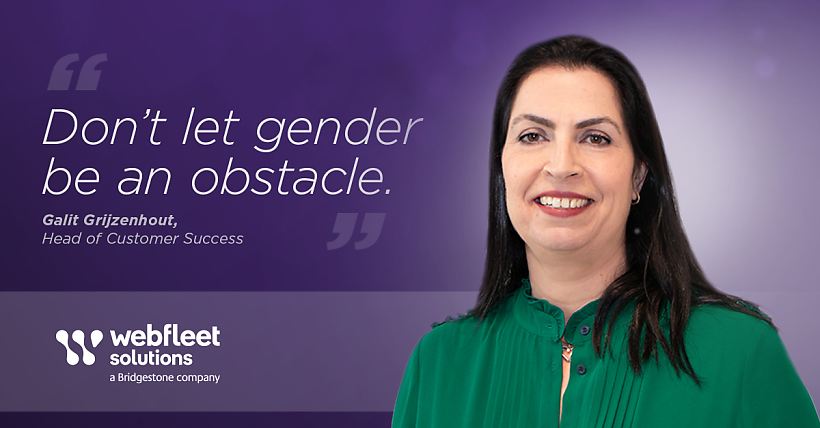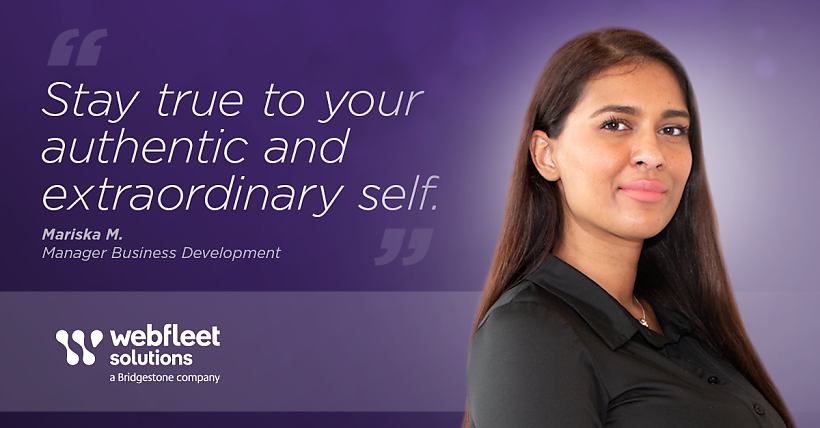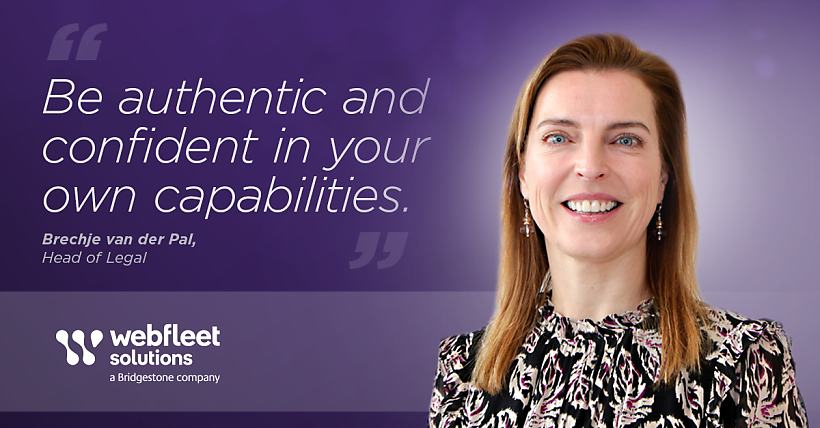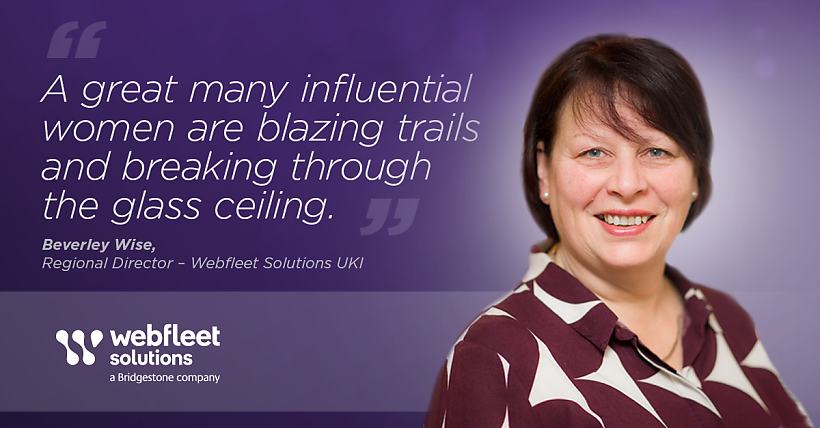In the build up to International Women’s Day, we spoke with six women in leadership positions in our business to hear their thoughts on diversity, inclusion and belonging in the workplace. Along with asking them about their personal experiences, we wanted to know what else our organisation can do to support workplace diversity.
Andrea Balbás, Associate Scrum Master

Despite being a female in engineering, being just one of three female engineering managers out of 18 in our organisation, as well as leading a team of 12 men, I have never felt gender-based discrimination. For that, I feel lucky, but I know I shouldn’t feel lucky. It should be normal that if you are succeeding in your career, that you’re not diminished or discriminated against because of your gender. So, I know I feel lucky, but I shouldn’t.
For me, I always knew that I wanted to get into people management. That was always a goal, and I worked with that goal in mind. One thing I’ve noticed is the difference between the people management styles of men and women. Of course, this is not applicable to everyone, because we are all different, but what I notice is that women tend to have more soft skills and be more empathetic.
For me, this is essential if you want to successfully manage people and promote teamwork. I believe this is something that we have developed from an early age because society has taught us to be “gentle.” I mean, for many girls your first toy is a baby, so immediately we are learning to be carers. I believe that we can use this to our strength when it comes to management.
In the end, as a manager, you need to understand that we are working with people, and people have ideas, have thoughts, have feelings, have good days and bad days. You need to consider people as a whole, not just one part of a Swiss clock. Keep in mind that the people you are working with, and managing, are individuals with aspirations. Maybe they have issues at home, financial problems or other things that will be impacting them. In the end, we are complex human beings, and you cannot handle a team if you don’t see that one person is carrying with them a complex ecosystem of things.
Galit Grijzenhout, Head of Customer Success

My entire career has been based on taking risks, setting goals, believing in myself and creative thinking. As well as working hard, it’s because of all of this that I was privileged to grow. Having the ability to believe in your ambitious self and trust your intuitive thinking is so important. If you set your goals and you believe in yourself, you can reach them regardless of gender. This has been my motto in everything that I do in life privately, but also professionally, and I carry it with me when developing my team and others around me like my son. If you believe in yourself, you have the courage to take risks, regardless of gender.
This is also why I chose to apply for the Head of Customer Success, a new role I have just recently taken on in our organisation. This is really outside of my comfort zone, coming from a background of Supply Chain and Logistics, but I’m constantly eager to learn more, and this means taking risks and having self-belief. Since an early age, I believed that there was a place to grow and to learn, and an opportunity to bring up your own statement. If you’re ambitious, go with your ambition and don’t let gender be an obstacle. Of course, this is easier said than done. Across the world there are still societies where gender is an obstacle. But the more we can do to give women a platform, to promote equal opportunities and show the benefits of diversity in the workplace, the closer we’ll get to true equality.
I never felt any discrimination or blockers for being a woman. I never felt this coming from Israel, moving to the Netherlands or working in our organisation. In fact, within our company especially, I have always been fully supported by my managers and senior leadership to grow and develop. I believe that our company does give equal opportunities, but I want to see more of these opportunities going to a diverse group of people. For example, I’d love to see a woman on our board. I think it’s necessary for any organisation to strive for this. It would drive another kind of approach, one that is perhaps more intuitive and enhances emotional intelligence, qualities that I believe women leaders are generally stronger in and that create a balanced way of thinking.
Mariska M., Manager Business Development

The automotive industry is changing. We are finally breaking the mould and changing the gender imbalance in the industry. The numbers cannot be denied. The first female CEO and chairperson of a global automaker started making history in 2014. In 2018, the Fortune Global 500 showed that only 16 women (8%) were executives in the top 20 automotive industry companies.
We’re gradually seeing more women leaders taking on roles within the automotive industry, but more needs to be done.
Personally, I have experienced several situations of disconnection. Was it because I was overarching the table, or did I feel discouraged to be part of that table? At the time, I didn’t call anyone out on this. I lacked in speaking up for myself.
Today, I’ve grown and realised that you need to express yourself. If I don’t feel respected in any situation, I will mention it. After all, no one else will speak up for you, and the only way to make a change and educate those around you is by engaging in such a dialogue. It can be hard sometimes, but it makes you more confident in the end.
One life lesson that I truly believe in is the importance of staying true to your authentic and extraordinary self. That was told to me by a female friend and mentor, and it applies to my daily life. By embracing everything that I bring to the table, as a woman of colour in the automotive industry, I strive to follow these lessons. Diversity at every level of a business is essential. Simply, the representation of individuals who bring their authentic background and perspectives matters. This leads to a more inclusive and innovative workplace.
Maite Cia, OE Category Manager for Advanced Tyre Solutions

I joined Bridgestone back in 2007 as a Field Engineer, and at that time I was the first woman to have this role in Bridgestone Europe. I never felt different. I was actually very welcomed and bonded with the team. The guys used to joke telling me “You’re one of us”. I felt fully integrated and I’m confident that any women taking on this path in our organisation will feel the same. Nowadays, we still keep a good relationship and actually some of my internal rotations were supported by their referrals.
However, it’s true that being a woman in my position would still surprise some people. For example, when going to the field, visiting garages, yards, or truck drivers, it was funny that I was clearly not who they were expecting to meet. But as soon as you start talking business, all of that goes away, and people just focus on the professional matters. Changing the mindset that certain roles belong more to a man or a woman, is a job where we all have a role to play and luckily, most people are open-minded to do so.
One thing I sometimes wonder is, “if I were a man, would my career have been the same?”. We’ll never know the answer. But it’s a fact that, if you look at the general statistics, being a woman does not help. While the female presence in lower responsibility roles is growing, we lack women in leading positions, and it has nothing to do with women being less capable than men. The same goes for people of different ethnic backgrounds and cultures. It’s true that things have started to change and that a shift is happening, but it’s slow. We need to see more women taking on leading positions in business, including within our own organisation. This will contribute to workplace diversity, bring new perspectives and ideas, and take the organisation to the next level.
Brechje van der Pal, Head of Legal

For me, diversity in the workplace is a topic that deserves continued attention. I don’t just mean diversity in gender, but in all aspects of culture, religion, ethnicity and more. It’s our differences and unique experiences that brings balance. It’s because of the benefits that diversity brings that I feel it is important for companies to nourish (female) talent early on and support them in their career progression. Throughout my career I learned that to create opportunities, you need to be authentic and confident in your own capabilities. Be clear in what you want to achieve and don’t let society or other people dictate your behaviours. I see a lot of progress in our organisation towards workplace diversity, and we are committed to take it to a higher level. I am proud to be a part of that. In my view, having that diversity throughout the company and all the way up to the boardroom is crucial to allow and promote balanced decision-making, as well as to provide inspiration to others.
Equally important is for organisations to support the work-life balance of its employees. Perhaps one of the barriers to women making it into the boardroom is that many feel they need to decide between family life or a successful career. Yes, today, we are told that we can have it all, but we know for a fact that women are more directly impacted by having children than men. Organisations must respect that people have their own lives, and thus support their employees with finding the right balance. I personally have always felt fully supported in our organisation to achieve my professional goals and to progress. Alongside that, I have also been given the flexibility to dedicate time to my family. In my role as a manager, I actively encourage my team to have a healthy work-life balance and do not see any less commitment from them, quite the contrary.
We have all experienced how capable organisations are to adjust in times of crisis. Just look at how quickly businesses adapted when the Covid-19 pandemic hit, quickly introducing work from home policies or flexible working that helped parents manage their childcare responsibilities alongside work. Organisations should apply the same mindset to drive further improvements, supporting a healthy work-life balance. It’s an opportunity for companies to grow, to harness top talent and not lose them, and most importantly, not make people choose between career or parenthood. Let’s create an environment where people can flourish, develop and are appreciated. In the end, I believe businesses will only benefit from that.
Beverley Wise, Regional Director UKI

In the early years of my career, being female – especially in sales – in the automotive industry was quite rare. The sector was undeniably male-dominated.
Progress has been made, however, and a great many influential women are blazing trails and breaking through the glass ceiling.
My personal experiences in the industry have been a mixed bag. I’ve worked at companies where females were treated very much as equals, including Webfleet, but then at others where sexist attitudes and comments were commonplace.
Over the years, there have been times when it has been clear to me that I’ve been treated differently simply because of my gender. I’ve had to stand up for myself and say “No, this should not be happening.” But thankfully, behaviour that was once accepted wouldn’t be tolerated today.
Two out of six of our regional directors at Webfleet are women, and a lot of my own team are female too. When I’m recruiting, gender is never a consideration – I hire purely on ability. We all know that it shouldn’t matter whether you’re male or female. If you’re good enough for the job, you’re good enough for the job. Unfortunately, we also know that gender bias in workplaces still exists, and efforts must continue to be made to empower women leaders and eradicate all forms of discrimination.
The fleet automotive sector does seem to attract more male workers, but I’d definitely encourage females to make that leap into the industry. It’s an ever-changing, dynamic sector, with the switch to electrification seeing it go through the biggest changes since the invention of the combustion engine. You never stop learning – whether that’s about new legislation, technology or skills – which allows you to develop and to expand your horizons, meeting a wide variety of people on your journey, from owner-operators to executives at multinational companies.
You shouldn’t be put off by the employment history of the automotive sector. Today there are a wealth of opportunities for women in leadership – whether that’s within our business, manufacturers or companies managing fleets. If you’ve got the requisite skills, you can make it!








